QuestionI recently adopted a boxer that is 12months. he is so loving and awesome. but as soon as I leave he tears up the house, he goes to the bathroom in the house and chews things, digs in my plants, gets in the trash. I have only left him alone for about an hour here or there. but I know when I come home there will be a mess. what can I do. I bought him a metal crate and he panics and kicks his way out of it. will obedience training help with that at all? also he knows his command s and chooses to ignore them when he feels like it, what can I do about that?
AnswerThe key to most behavior problems is approaching things using the dog's natural instincts. Dogs see all the people and dogs in the household as a pack with each having their own rank in the pack and a top dog. Life is much easier if the 2 legged pack members outrank the 4 legged ones. You can learn to play the role of top dog by reading some books or going to a good obedience class. A good obedience class or book is about you being top dog, not about rewarding standard commands with a treat. Start at http://www.dogsbestfriend.com/ For more on being top dog, see http://www.dogbreedinfo.com./topdogrules.htm
This is meant for younger dogs, but do what you can:
''Elevation for small puppies: Sit on the floor and gently put your hands around your pup's middle, below his front legs, and lift him up. He is facing you. Hold him for 15 seconds. Repeat until he no longer struggles. If he is past 10-12 weeks, lift his front feet off the ground, but don't pick him up.
Cradling for small puppies: Hold your puppy gently on his back, as you would cradle a small baby. If he struggles, hold him firmly until he quiets for 10-15 seconds. With larger pups, you can do this as your sit on the floor, with your pup between your legs.
Quiet lying down: Place your pup on the floor on his side, with all 4 legs pointing away from you. Use your hands on his neck/shoulder area and middle, to hold him in this position. When he is quiet, praise him. Lengthen the time that you keep him quietly in this position. When he accepts this position well, handle his paws and muzzle, while keeping him quiet.''
The quotes mean this isn't my original work. It is copied from my Puppy Raising Manual. I have long used these or minor variations of them, and they are very effective. You may want to give him a belly rub while he is on his back too. Helps bonding. There is a big difference between him rolling over and demanding a belly rub, and you choosing a time to roll him over and rub his belly. The latter cements your place as pack leader.
Crates work extreamely well with dogs that start out in them as small puppies. Perhaps a tie down would work. They are just a short piece of chain fastened at one end, and a snap at the other. They restrict the dog to a limited area just as crates do. Just make sure he can't reach anything. A couple of yers ago, I left my daughter's shepherd on one when they left his crate at home. When I got home, everybody was working at cleaning up the mess he made. The kitchen table was just close enough for him to reach a corner of the table cloth and pull it off and shred it.

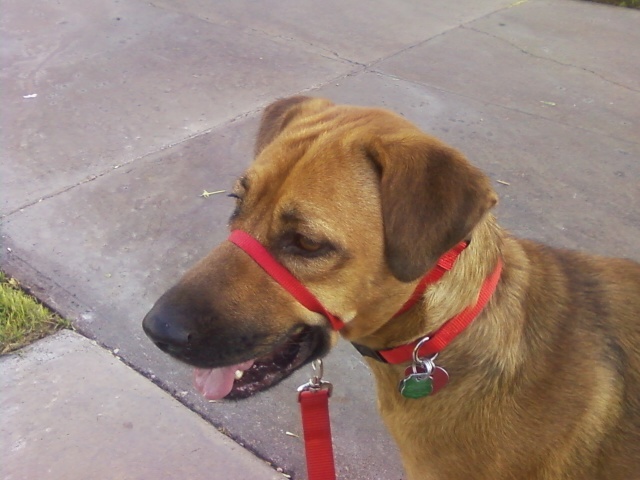 My dog Kiya
Question
Kiya
My new dog Kiya is a 2 yr old German Shep
My dog Kiya
Question
Kiya
My new dog Kiya is a 2 yr old German Shep
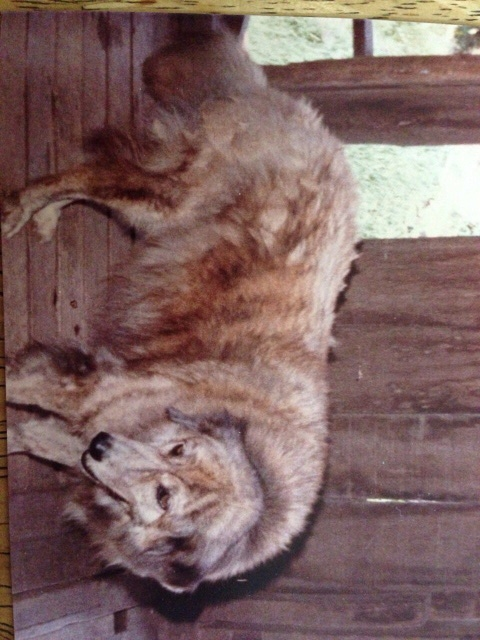 Identifying the breed
Question
Unknown Dog
Greetings Patti, I would li
Identifying the breed
Question
Unknown Dog
Greetings Patti, I would li
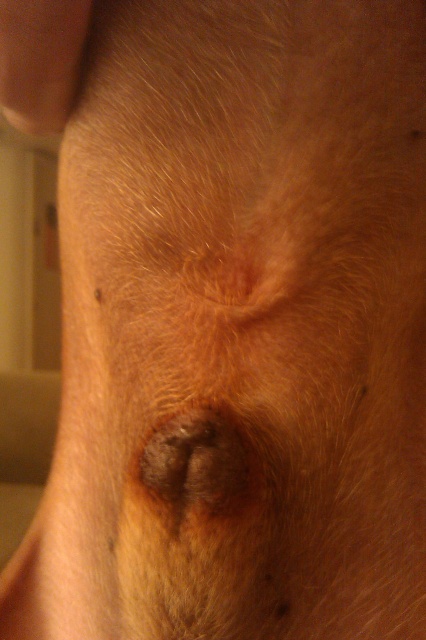 Found Dog
Question
this is what it looks
Hello my is sara and my
Found Dog
Question
this is what it looks
Hello my is sara and my
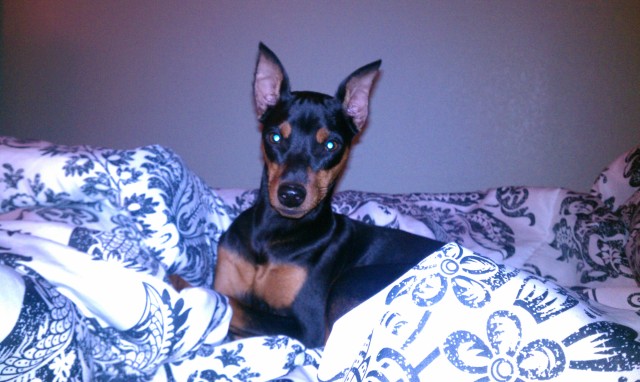 My miniature pinscher :)
Question
Chanel
I had a miniature pinscher of 8
My miniature pinscher :)
Question
Chanel
I had a miniature pinscher of 8
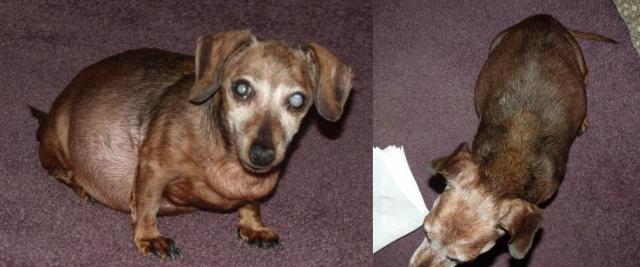 Older dog with distended stomach.
Question
Belle
Hi, my 14 year old miniature dachshund,
Older dog with distended stomach.
Question
Belle
Hi, my 14 year old miniature dachshund,